FunFair History: Carousels, Bumper Cars and Not Much To Say About The Waltzers
Pleasures At The Fairgrounds
A funfair has arrived on the park opposite my house so we went for a stroll yesterday. Alas it was more for kids, plus we didn't have much change on us, but I always enjoy being around bustling noise and colours, and if anything it has led on to me writing this post.
A FUNfair fact: Over 200 fairs take place every weekend in the UK between spring and autumn!
Although fairs and various gatherings have been going on for centuries and more, it was the 1860's that paved the way for what we know funfairs to be now. The technological advancements with steam power created a whole new range of fairground pleasures.
I decided to look into some of my favourite rides...
The Carousel aka The Gallopers
The word carousel actually derives from the mixing of the old Italian word Garosello and the Spanish word carosella, meaning 'little battle'. More on that in a minute.
In the early 19th century, the original Carousels were pulled around by actual horses or other livestock and the wooden horses you sat on were hung by chains so that the force would defy gravity, wafting you out as you spun around. Sounds like fun!
I always wondered why it was horses that were the chosen design for the ride and it turns out that the idea stems from the days of jousting in the Middle Ages. Middle Eastern and European Knights would practice their horsemanship skills by galloping around in small circles, throwing balls back and forth to each other. This is apparently very difficult to do, so the better you did, the more respect your fellow knights would give you.
Eventually commoners would also practice their horsemanship skills between each other in similar ways, and so for the children, a little wooden roundabout with wooden horses were built so they too could practice just like their parents. This wooden children's toy was the birthplace of the carousel idea. Hence, 'Little Battle'.
It was Thomas Bradshaw who invented the steam-powered carousel in 1861, and at the time it was such a modern and futuristic use of the technology that it soon led to people excitedly designing bigger and better ones, such as the largest ever in the house on the rocks, Wisconsin:
It used to be that carousels in the UK would always spin clockwise, but if you went to Mainland Europe or America they would always spin counter-clockwise. I wonder if that's still the same these days…?
Bumpy Bumper Cars
The metal floor is usually set up as a rectangular or oval track, graphite is sprinkled on the floor to decrease friction. A rubber bumper surrounds each vehicle, and drivers ram each other as they travel. The cars can be made to go backwards by turning the steering wheel far enough in either direction, necessary in the frequent pile-ups that occur.Source
Bumper Cars were invented in the 1920s (but apparently there are too many patents in existence claiming first rights, so nobody has full credit for this bumpy fair ride). It became a big attraction in America with 2 major companies, Dodgem and Lusse Auto-Skooters battling for popularity.
Bumper Cars didn't take off in Britain straight away, it wasn't until the 1950's when us Brits decided to go wild for this ride.
An early form of this ride came in 1907 at Luna Park, Coney Island, USA, where there was a sort of Bumper Car ride called the 'Witching Waves', coming later at Blackpool Pleasure Beach, England around the 1930's.
But these were more about tilting floor panels to move riders around.
By 1959 the Lusse Brothers got authorisation from the car manufacturer Chevrolet to build the first fibreglass Bumper Cars (the same as what we use today), then in 1960, Disneyland built their own hovercraft-style Bumper Car ride called 'The Flying Saucers.'
Of course America always has to go big (15.77m x 38.02m to be exact).
Illinois hosted the biggest Bumper Car ride in the world called the 'Rue Le Dodge' but it stopped operating 2008. There may be plans to reopen, but who knows.
The Waltzers (it ain’t a fairground without ‘em!)
I couldn’t find much on the Waltzers. It seems to be the result of gradual evolution from previous rides. The first Waltzer was built in 1933, they started off with 10 cars but 9 or 11 car variations could be found (interesting eh?).
And it seems that it was Scottish people who really took a liking to this ride around 1935 making it popular nationwide.
(Should I make a waltzer poem to fill the gap of knowledge?)
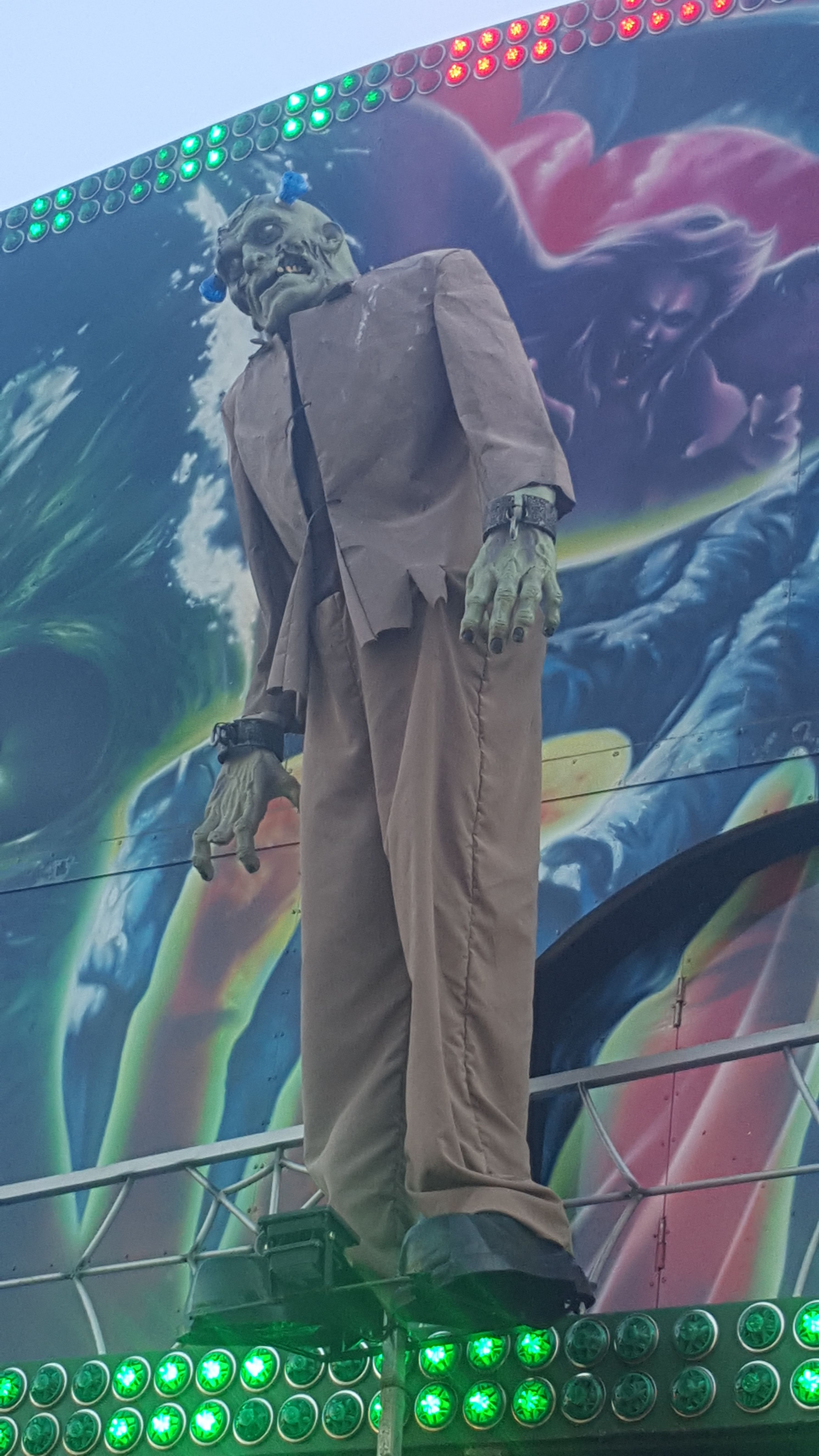
The history of the other rides seem rather similar to these. They all derive from a gradual process of fairground growths as far back as the medieval times and further back some more, with a rapid explosion after the invention of steam power. So there’s not much else to find out; it's like asking who invented the swing. Cavemen probably! So that’s my interests in Fairground history quenched for now, and I hope yours is too.
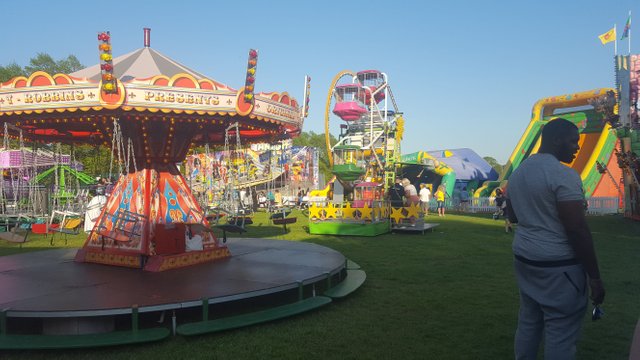
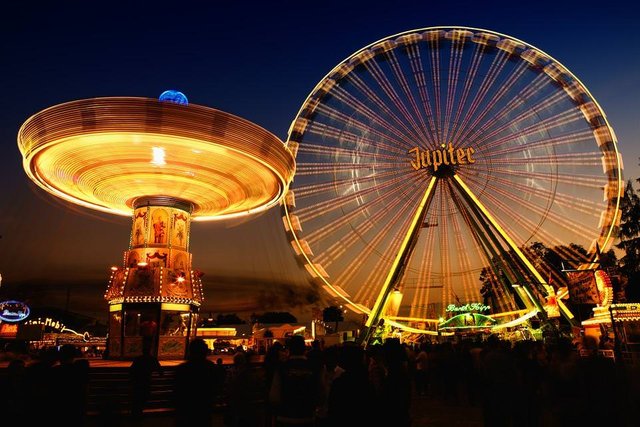
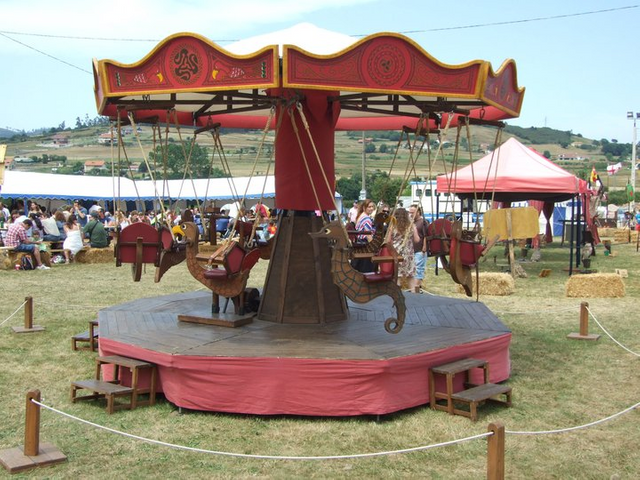
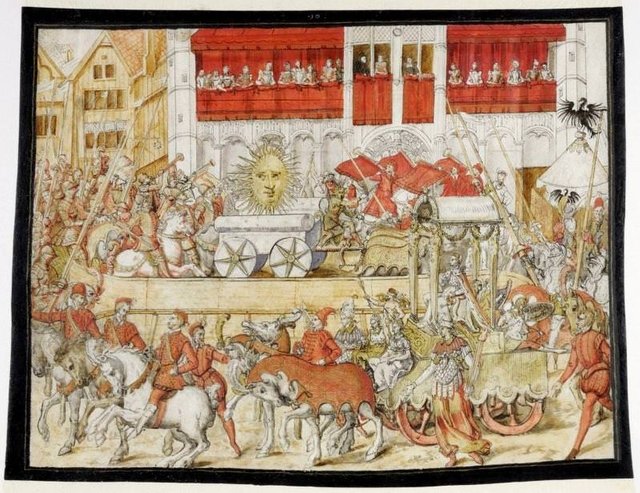

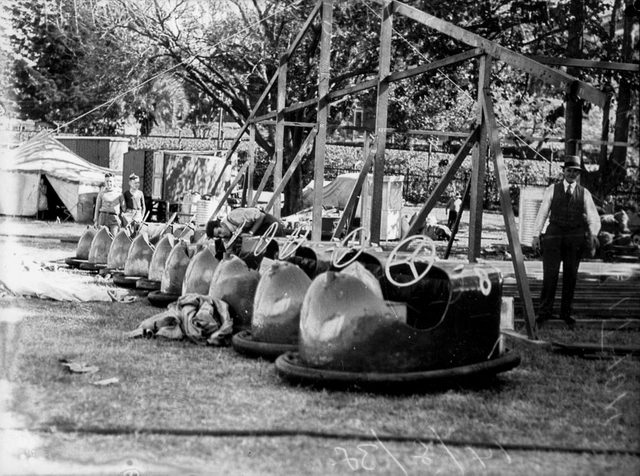
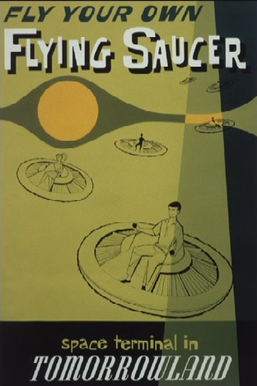

Reading this post has bring some nostalgia in me. It has been years since I have visited one of these places, and I remember all the fun I had when I was little.
You are lucky to have one of those funfair close to your house, enjoy :) !
What was one of your favourite rides? I love a ghost train! But there wasn't much interesting history about that one. Really loving the evening sounds of my funfair atm, moosic pumping across the park mixed with screams and yays. Very nostalgic indeed, I munched some candy floss (nom) :D